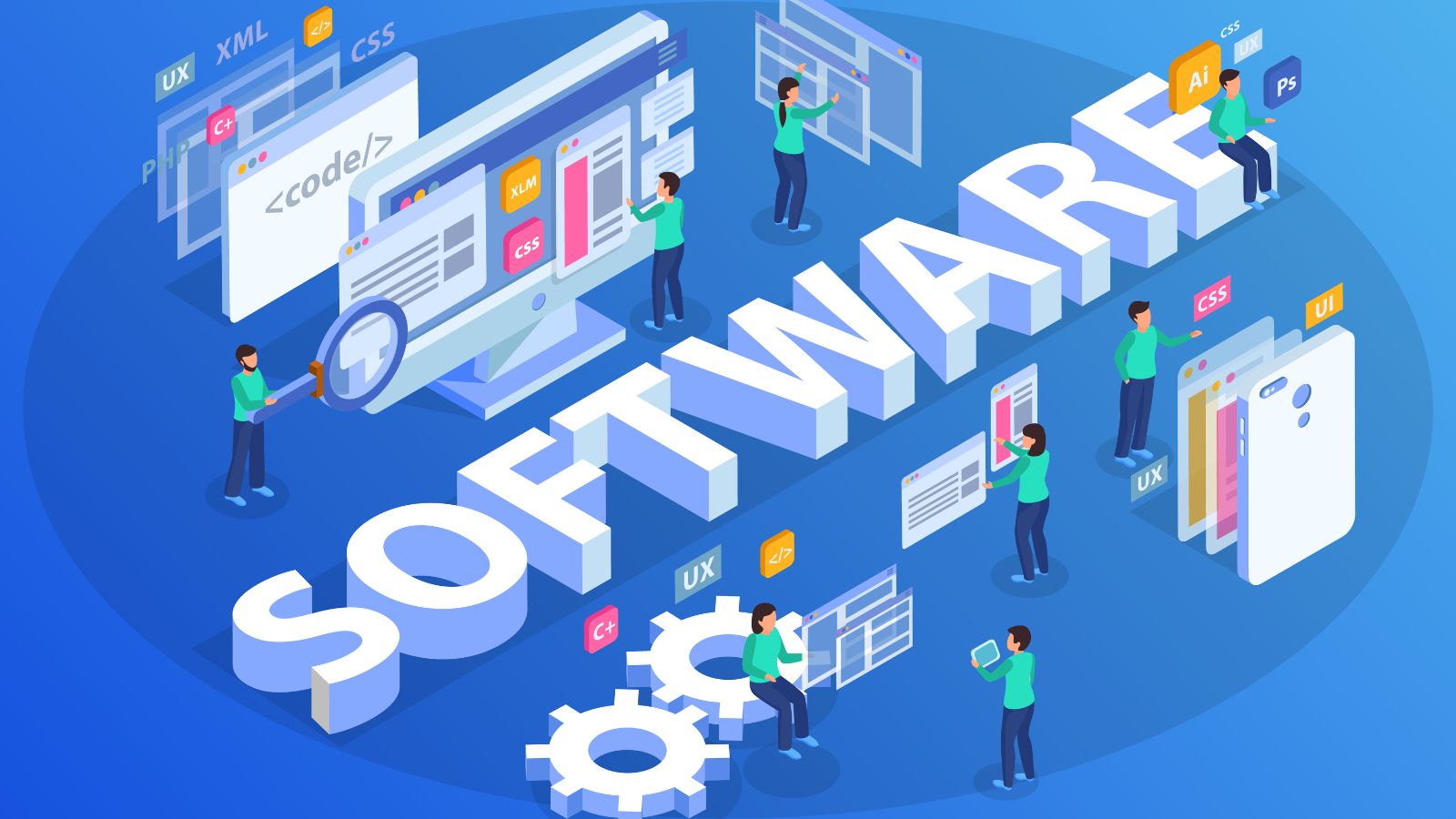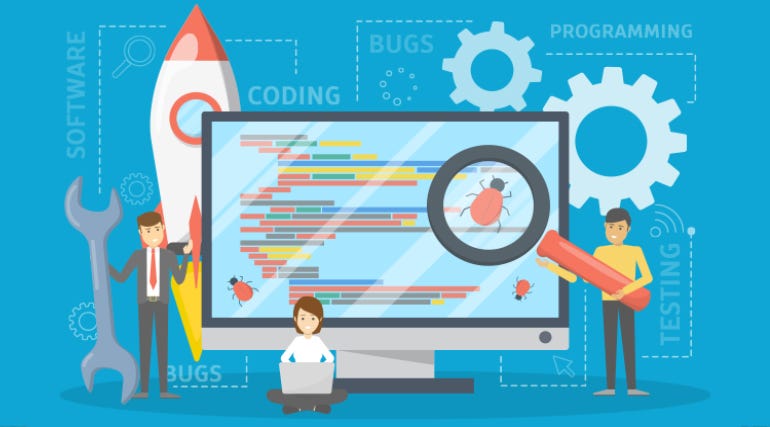
8 Key Qualities To Look For In A Software Development Company In Indianapolis For Your Project
Indianapolis, the thriving capital of Indiana, is not only known for its iconic motor racing events but also for its growing tech scene. As businesses across various industries continue to embrace digital transformation, the demand for software development services in Indianapolis has surged. Whether you’re a local startup, an established enterprise, or an entrepreneur with a brilliant app idea, finding the right software development company in Indianapolis is crucial to your project’s success.
In this fast-paced digital era, selecting a software development company that aligns with your project goals and vision is a decision that requires careful consideration. The right partner can accelerate your software development project, turning your concepts into robust, user-friendly software solutions. Conversely, a wrong choice can lead to project delays, cost overruns, and subpar results.
Indianapolis, with its dynamic business environment, offers a plethora of options when it comes to software development companies. From boutique agencies specializing in niche technologies to full-service firms handling complex enterprise projects, the choices can be overwhelming. To make an informed decision, it’s essential to understand what factors to evaluate when selecting the ideal software development company in Indianapolis.
How Important Is Industry Experience and Expertise When Selecting A Software Development Company In Indianapolis
Industry experience and expertise play a pivotal role when selecting a software development company in Indianapolis, as they significantly impact the success of your project. The importance of these factors cannot be overstated, as they directly correlate with the company’s ability to understand your specific business needs, navigate industry challenges, and deliver a tailored software solution that meets your objectives.
First and foremost, industry experience demonstrates that a software development company has a deep understanding of the unique challenges, trends, and regulatory requirements within your specific industry. This familiarity allows them to anticipate potential obstacles and devise strategies to overcome them effectively. For instance, if you are in healthcare, having a software partner with experience in Health Information Portability and Accountability Act (HIPAA) compliance is crucial to ensure the security and privacy of patient data.
Moreover, industry expertise fosters better communication between you and the software development team. They speak the same industry language, making it easier to convey your vision and requirements accurately. This alignment leads to more efficient project discussions, reduced misunderstandings, and ultimately, a higher likelihood of project success.
Another key advantage of working with a software development company with industry experience is the potential for innovation and best practices. They have likely encountered similar challenges in past projects and can bring valuable insights and solutions to the table. They may have pre-existing frameworks or templates that can accelerate development, reduce costs, and enhance the quality of your software.
Furthermore, experienced companies are often well-connected within the industry, allowing them to tap into a network of professionals and resources when needed. This can be especially beneficial if your project requires specialized knowledge or partnerships with other industry players.
In conclusion, industry experience and expertise are critical factors when selecting a software development company in Indianapolis. They not only enhance the efficiency and effectiveness of the development process but also ensure that your software solution is tailored to your industry’s unique requirements. By partnering with a company that understands your industry inside and out, you can increase the chances of a successful project that meets or exceeds your expectations.
How Ask If They Have Relevant Client Portfolio and Case Studies

When evaluating a software development company in Indianapolis, it’s essential to inquire about their client portfolio and case studies to gauge their experience and track record. This information provides valuable insights into the types of projects they have worked on, their ability to deliver results, and their compatibility with your specific needs.
To broach this topic effectively, consider asking questions like:
Can you share examples of previous projects that are similar to ours in terms of scope and complexity?
This question opens the door to discussing specific projects in their portfolio that align with your project’s requirements. It allows the company to showcase their relevant experience.
Could you describe a recent success story or case study that demonstrates your expertise in our industry or technology stack?
Requesting a detailed case study or success story helps you understand how the company approaches and solves real-world challenges. It offers a deeper perspective on their capabilities.
Do you have references from past clients we can speak with?
Asking for references allows you to directly connect with previous clients who can provide candid feedback about their experience with the software development company. Speaking to references can offer valuable insights into their professionalism, communication, and project outcomes.
Can you provide statistics or metrics from past projects that highlight your performance, such as project completion times, cost efficiency, or user satisfaction?
Asking for quantitative data can help you assess the company’s track record more objectively. It demonstrates their commitment to transparency and accountability.
Are there any specific challenges or unique aspects of your previous projects that you believe are relevant to our current needs?
Encourage the company to share any noteworthy challenges they’ve overcome or unique solutions they’ve implemented in their past projects. This information can reveal their problem-solving capabilities.
What industries or sectors have you primarily served, and do you have experience in our industry?
Understanding the industries the company has worked with can give you an idea of their adaptability and ability to cater to diverse business needs. It’s particularly important if your project involves industry-specific regulations or requirements.
By asking these questions, you can gain a comprehensive understanding of the software development company’s capabilities, strengths, and relevance to your project. Their responses, along with the accompanying client portfolio and case studies, should help you make a well-informed decision about whether they are the right fit for your software development needs in Indianapolis.
What Is Their Technical Proficiency and Tools They Will Use For Your Software Development Project

Understanding a software development company’s technical proficiency and the tools they plan to use for your project is crucial to ensure that they have the capabilities and resources necessary to deliver a high-quality solution tailored to your needs.
Firstly, inquire about the technology stack they intend to employ for your project. This includes programming languages, frameworks, databases, and development methodologies. Ensure that their chosen stack aligns with your project’s requirements and objectives. For example, if you are building a web application, inquire about their proficiency in popular web development languages like JavaScript, Python, or Ruby, as well as the frameworks they prefer.
Additionally, ask about their experience with specific tools and platforms relevant to your project. For instance, if you are developing a mobile app, inquire about their expertise in app development platforms such as iOS (Swift) or Android (Java/Kotlin), as well as any cross-platform frameworks like React Native or Flutter. Understanding their proficiency in these tools can provide insights into their ability to create a seamless and efficient user experience.
It’s essential to discuss their approach to software architecture and design. Inquire about their strategies for scalability, security, and data management. A proficient software development company should have a well-defined architectural plan to ensure that your project can grow and adapt as needed while maintaining performance and security standards.
You should also explore their familiarity with DevOps practices and tools. DevOps integration ensures efficient collaboration between development and IT operations, leading to faster deployment, continuous integration, and automated testing. Inquire about their use of version control systems (e.g., Git), continuous integration/continuous deployment (CI/CD) pipelines, and monitoring and logging tools.
Discussing their quality assurance and testing practices is crucial. Understand how they plan to test and validate the software to ensure it meets quality standards and is free from critical bugs or vulnerabilities. Ask about their preferred testing frameworks, tools, and methodologies, such as manual testing, automated testing, or user acceptance testing (UAT).
When assessing a software development company’s technical proficiency and tools for your project, focus on alignment with your project’s requirements, their ability to adapt and scale, and their commitment to quality and security. Open and transparent communication regarding these technical aspects is essential for a successful partnership and the delivery of a software solution that meets your expectations in Indianapolis or any other location.
What Are Their Team Composition and Skillsets

Evaluating the team composition and skillsets of a software development company is a critical step in choosing the right partner for your project. The composition and expertise of their team can directly impact the quality and efficiency of your software development endeavor.
Development Team Structure
Start by understanding how their development team is structured. Inquire about the roles and responsibilities of team members, including software developers, designers, quality assurance engineers, project managers, and any other relevant positions. A well-balanced and cross-functional team is often indicative of a company’s ability to handle complex projects.
Skillsets and Expertise
Ask about the skillsets and areas of expertise within their team. For instance, if you require expertise in specific programming languages or frameworks, inquire about their developers’ proficiency in those technologies. Ensure that their skillsets align with the technical requirements of your project.
Certifications and Training
Inquire about any relevant certifications or training that team members possess. For example, certifications in technologies like AWS, Microsoft Azure, or Google Cloud can indicate a commitment to staying current with industry best practices.
Experience Levels
Inquire about any relevant certifications or training that team members possess. For example, certifications in technologies like AWS, Microsoft Azure, or Google Cloud can indicate a commitment to staying current with industry best practices.
Collaborative Capabilities
Inquire about any relevant certifications or training that team members possess. For example, certifications in technologies like AWS, Microsoft Azure, or Google Cloud can indicate a commitment to staying current with industry best practices.
Continual Learning
Inquire about their commitment to continual learning and staying up-to-date with emerging technologies. The tech landscape evolves rapidly, so a proactive approach to skill development is vital.
Problem-Solving Abilities
Assess their problem-solving abilities and their approach to addressing challenges that may arise during the project. The ability to adapt and find solutions is invaluable in software development.
By delving into the team composition and skillsets of a software development company, you can gain confidence in their ability to execute your project effectively. A well-rounded and skilled team is an asset, as they can contribute to the successful delivery of a high-quality software solution in Indianapolis or any other location.
Understand their Communication and Project Management style

Evaluating a software development company’s communication and project management style is essential to ensure a smooth and effective collaboration. Clear communication and efficient project management are critical for meeting project goals, staying within budget, and delivering a quality software solution. Here’s how to understand these aspects:
Communication Channels: Ask the company about their preferred communication channels. Whether it’s email, project management tools like Slack or Asana, regular video conferences, or in-person meetings, understanding how they plan to keep you updated is crucial. Make sure these channels align with your preferences and expectations.
Frequency of Updates: Inquire about the frequency of project updates and progress reports. A reliable company should provide regular updates, allowing you to stay informed about project milestones, challenges, and any changes in scope or timeline.
Transparency: Transparency is key to a successful partnership. Ask how they handle transparency regarding project progress, issues, and financial matters. Are they open to sharing detailed project documentation, code repositories, and financial statements?
Project Manager: Identify who will be your primary point of contact and project manager. A dedicated project manager plays a pivotal role in coordinating tasks, managing timelines, and facilitating communication between your team and theirs.
Communication Style: Assess their communication style and responsiveness. Quick and clear responses to your inquiries and concerns are indicative of a company that values effective communication.
Status Meetings: Inquire about their approach to status meetings and reviews. Regular meetings can help keep the project on track, address any roadblocks, and ensure that everyone is aligned with project goals.
Change Management: Discuss how they handle changes in project scope or requirements. A flexible approach that includes change management procedures can help prevent scope creep and ensure that adjustments are well-documented and approved.
Risk Management: Understand their approach to risk management. A reliable company should have contingency plans in place to address potential project risks and minimize disruptions.
Client Involvement: Determine the level of client involvement they encourage or require throughout the project. A collaborative approach that welcomes your input and feedback is often beneficial for achieving project success.
Project Documentation: Ask about the types of project documentation they provide. Clear documentation, including project plans, technical specifications, and user manuals, is essential for transparency and future maintenance.
Issue Resolution: Discuss how they handle project issues or conflicts. Knowing their approach to problem-solving and conflict resolution can give you confidence in their ability to overcome challenges.
Project Tracking Tools: Inquire about the project management and tracking tools they use. Tools like Jira, Trello, or Microsoft Project can help streamline project management processes and provide visibility into progress.
By thoroughly understanding a software development company’s communication and project management style, you can ensure that their approach aligns with your expectations and project requirements. Effective communication and project management practices are vital for a successful partnership and the timely delivery of your software project in Indianapolis or any other location.
Learn About Their Quality Assurance and Testing Practices

When selecting a software development company in Indianapolis, gaining insights into their quality assurance (QA) and testing practices is paramount. This aspect of their process ensures that the software they deliver meets your expectations, functions smoothly, and is free from critical errors or vulnerabilities.
First and foremost, inquire about their overall testing strategy. A comprehensive testing strategy should encompass various stages of the development lifecycle, from initial requirements gathering and design to coding, testing, and post-launch maintenance. Understanding their holistic approach to testing will give you confidence in their commitment to quality.
Next, delve into the specific types of testing they perform. These may include unit testing, which evaluates individual components of the software; integration testing, which assesses interactions between components; system testing, which examines the entire system’s functionality; and user acceptance testing (UAT), where you validate the software against your business requirements. Ensure that their testing plan aligns with your project’s unique needs.
Automation plays a vital role in efficient testing. Inquire about their use of automated testing tools and frameworks. Automated testing can expedite the testing process, increase test coverage, and help identify issues early in the development cycle. Understanding their automation capabilities and the balance between automated and manual testing is crucial.
A robust testing process should also incorporate regression testing. This involves retesting existing functionalities to ensure that new changes or updates haven’t introduced unexpected issues. Ask about their regression testing practices and the frequency with which they perform it.
For projects with scalability requirements, discuss their load and performance testing procedures. These tests assess how the software handles various loads and ensure it meets performance expectations. Ensuring your software can handle expected user traffic is crucial for a smooth user experience.
Lastly, discuss their testing team’s composition and expertise. Experienced QA engineers are essential for identifying issues effectively and efficiently.
By gaining a comprehensive understanding of their quality assurance and testing practices, you can make an informed decision about whether the software development company has the capabilities and commitment to deliver a reliable and high-quality software solution tailored to your needs in Indianapolis or any other location. Effective testing practices are a critical component of a successful software project.
Scalability and Future-Proofing

Evaluating a software development company’s approach to scalability and future-proofing is essential to ensure that your software solution remains viable and adaptable as your business evolves. Here’s how to learn more about these aspects:
Scalability Planning: Begin by discussing their scalability planning process. Inquire about their strategies for accommodating increased user loads, additional features, and changing business needs. A well-thought-out scalability plan should ensure that your software can grow with your organization.
Architecture Design: Understand how they approach software architecture and design with scalability in mind. Scalable architecture typically involves the use of modular components, microservices, and cloud-native technologies that can be easily expanded and adjusted as needed.
Technology Stack: Inquire about their choice of technologies and frameworks. Ensure that they use technologies that support scalability, such as cloud platforms (e.g., AWS, Azure, Google Cloud) and containerization (e.g., Docker, Kubernetes). The flexibility of these technologies is vital for future growth.
Database Scalability: Discuss how they handle database scalability. Scalable database solutions, like NoSQL databases or distributed databases, can accommodate growing data volumes and ensure performance remains optimal.
Load Balancing: Ask about their load balancing strategies. Load balancing distributes user requests across multiple servers or instances to maintain performance during high traffic periods. Understanding their load balancing approach is essential for scalability.
Monitoring and Performance Tuning: Inquire about their approach to monitoring and performance tuning. Regular monitoring and optimization help identify and address performance bottlenecks, ensuring that your software remains responsive as usage increases.
Cost Management: Discuss cost management strategies related to scalability. Scalability should not lead to an exponential increase in operational costs. Ensure that they consider cost-effective solutions when planning for growth.
Future Technology Adoption: Understand their willingness to adopt emerging technologies and stay up-to-date with industry trends. A forward-thinking company is more likely to future-proof your software by incorporating technologies that will remain relevant in the years to come.
Flexibility in Feature Development: Discuss how they handle feature development. A software solution that is future-proof should be flexible enough to incorporate new features and functionalities without extensive redevelopment.
Vendor Lock-In Mitigation: Inquire about their strategies for mitigating vendor lock-in when using third-party services or cloud platforms. Avoiding excessive dependency on specific vendors can enhance long-term flexibility.
Documentation and Knowledge Transfer: Ensure that they provide thorough documentation and knowledge transfer. This is crucial for maintaining and extending your software in the future, even if you decide to work with a different development team.
Scalability Case Studies: Ask for case studies or examples of projects where they successfully scaled software solutions to accommodate growing user bases or evolving requirements. Real-world examples can demonstrate their expertise in this area.
By exploring their approach to scalability and future-proofing, you can assess whether the software development company has the foresight and technical expertise to ensure that your software solution can adapt and thrive in a changing business landscape. Scalability and future-proofing are essential considerations for long-term success and ROI in software development.
Cost Transparency and Budget Alignment
 Cost transparency and budget alignment are crucial factors when selecting a software development company in Indianapolis or anywhere else. These aspects ensure that your project remains on track financially and that you receive a clear understanding of how your resources will be utilized throughout the development process.
Cost transparency and budget alignment are crucial factors when selecting a software development company in Indianapolis or anywhere else. These aspects ensure that your project remains on track financially and that you receive a clear understanding of how your resources will be utilized throughout the development process.
During the initial stages of your partnership, it’s essential to have open and detailed discussions about your budget. Transparency is key here; be forthright about your budget constraints, financial expectations, and any limitations you might have. A reputable software development company should be willing to work within your budget and provide you with realistic estimates for the project.
A fundamental component of budget transparency is receiving a comprehensive project estimation. This estimate should break down the costs for different project phases, from the initial planning and design stages to development, testing, and ongoing maintenance. This breakdown allows you to gain insights into how your budget will be allocated and helps in identifying potential cost drivers within the project.
Managing project scope changes is another important aspect of budget alignment. Discuss how the company handles changes in project scope and their associated financial impacts. Effective change management procedures should be in place to document and approve changes, ensuring that both parties understand and agree on the financial implications of any modifications to the project.
The choice between a fixed-price contract and a time and materials contract can significantly impact budget management. Fixed-price contracts offer budget certainty but may have less flexibility, while time and materials contracts provide adaptability but require diligent budget monitoring. Understanding the implications of these contract types is crucial in aligning your budget with your project’s needs.
Additionally, inquire about the company’s cost control measures, including regular budget reviews, tracking against project milestones, and the ability to adjust project scope or priorities to align with the budget. A proactive approach to managing project costs can help prevent budget overruns.
Contingency planning is also essential. Ask how the company handles unexpected contingencies that may impact the budget, such as unforeseen technical challenges or changes in project requirements. A well-defined contingency plan should be in place to address such situations without disrupting the project’s financial stability.
Lastly, ongoing budget monitoring and reporting should be part of the partnership. Regular updates on project expenditures versus the budget allow you to make informed decisions and take corrective actions as needed to ensure that your project stays within financial constraints while delivering the desired outcomes aligned with your objectives.
Conclusion On 8 Key Qualities To Look For In A Software Development Company In Indianapolis For Your Project
In the quest to find the right software development company in Indianapolis for your project, it’s crucial to consider a myriad of factors. Eight key qualities stand out as critical markers of a capable and reliable partner. These qualities collectively contribute to a successful partnership and the delivery of a high-quality software solution tailored to your specific needs.
Industry Experience and Expertise: The first quality, industry experience and expertise, ensures that the company understands the unique challenges and regulations within your industry. This knowledge facilitates smoother communication, more efficient project execution, and the ability to provide valuable insights and solutions based on their industry-specific experience.
Client Portfolio and Case Studies: A rich client portfolio and a history of successful case studies serve as tangible proof of a software development company’s capabilities. By examining their past projects and client references, you can gain confidence in their ability to deliver results and align with your objectives.
Technical Proficiency and Tools: A proficient understanding of technology and tools is paramount. Their choice of technologies, development methodologies, and tools should align with your project requirements, ensuring that they have the technical prowess to turn your vision into reality.
Team Composition and Skillsets: The makeup of their team and the expertise they bring to the table significantly influence project outcomes. An experienced, skilled, and well-rounded team is essential for efficient development, problem-solving, and achieving project milestones.
Communication and Project Management: Effective communication and project management practices are vital for keeping projects on track and stakeholders informed. A company that excels in these areas can ensure transparency, minimize misunderstandings, and maintain alignment with your project goals.
Quality Assurance and Testing Practices: Robust quality assurance and testing practices guarantee that your software solution is reliable, secure, and free from critical defects. These practices should encompass various testing types and ensure that your software meets the highest quality standards.
Scalability and Future-Proofing: Forward-thinking companies plan for scalability, ensuring that your software can grow with your organization’s needs. They employ flexible architectures, technologies, and cost-effective strategies to future-proof your solution, protecting your long-term investment.
Cost Transparency and Budget Alignment: Transparent cost discussions and budget alignment are essential for managing project finances effectively. A reputable company should provide clear project estimations, detailed breakdowns of costs, and proactive budget management to keep your project on track financially.
The search for a software development company in Indianapolis requires a holistic evaluation of these eight key qualities. By considering their industry expertise, past work, technical proficiency, team composition, communication practices, testing methodologies, scalability strategies, and budget transparency, you can make an informed decision and embark on a successful partnership that yields a high-quality software solution tailored to your unique project needs.
During the initial stages of your partnership, it’s essential to have open and detailed discussions about your budget. Transparency is key here; be forthright about your budget constraints, financial expectations, and any limitations you might have. A reputable software development company should be willing to work within your budget and provide you with realistic estimates for the project.
A fundamental component of budget transparency is receiving a comprehensive project estimation. This estimate should break down the costs for different project phases, from the initial planning and design stages to development, testing, and ongoing maintenance. This breakdown allows you to gain insights into how your budget will be allocated and helps in identifying potential cost drivers within the project.
Managing project scope changes is another important aspect of budget alignment. Discuss how the company handles changes in project scope and their associated financial impacts. Effective change management procedures should be in place to document and approve changes, ensuring that both parties understand and agree on the financial implications of any modifications to the project.
The choice between a fixed-price contract and a time and materials contract can significantly impact budget management. Fixed-price contracts offer budget certainty but may have less flexibility, while time and materials contracts provide adaptability but require diligent budget monitoring. Understanding the implications of these contract types is crucial in aligning your budget with your project’s needs.
Additionally, inquire about the company’s cost control measures, including regular budget reviews, tracking against project milestones, and the ability to adjust project scope or priorities to align with the budget. A proactive approach to managing project costs can help prevent budget overruns.
Contingency planning is also essential. Ask how the company handles unexpected contingencies that may impact the budget, such as unforeseen technical challenges or changes in project requirements. A well-defined contingency plan should be in place to address such situations without disrupting the project’s financial stability.
Lastly, ongoing budget monitoring and reporting should be part of the partnership. Regular updates on project expenditures versus the budget allow you to make informed decisions and take corrective actions as needed to ensure that your project stays within financial constraints while delivering the desired outcomes aligned with your objectives.


